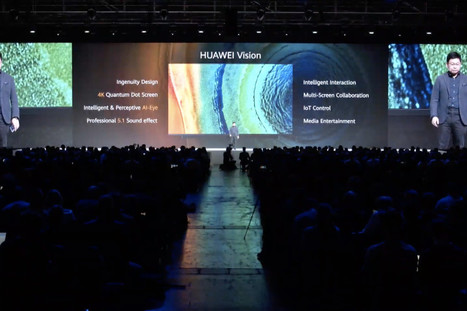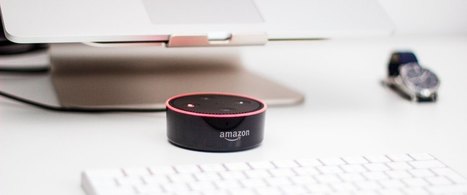Huawei announced its own 4K television, the Huawei Vision, during the Mate 30 Pro event today. Like the Honor Vision and Vision Pro TVs that were announced back in August, Huawei’s self-branded TV runs the company’s brand-new Harmony OS software as its foundation.
Huawei will offer 65-inch and 75-inch models to start, with 55-inch and 85-inch models coming later. The Huawei TV features quantum dot color, thin metal bezels, and a pop-up camera for video conferencing that lowers into the television when not in use. On TVs, Harmony OS is able to serve as a hub for smart home devices that support the HiLink platform.
Huawei is also touting the TV’s AI capabilities, likening it to a “smart speaker with a big screen.” The TV supports voice commands and includes facial recognition and tracking capabilities. Apparently, there’s some AI mode that helps protect the eyes of young viewers — presumably by filtering blue light. The Vision also allows “one-hop projection” from a Huawei smartphone. The TV’s remote has a touchpad and charges over USB-C.



 Your new post is loading...
Your new post is loading...









Still think YOU are watching TV ?